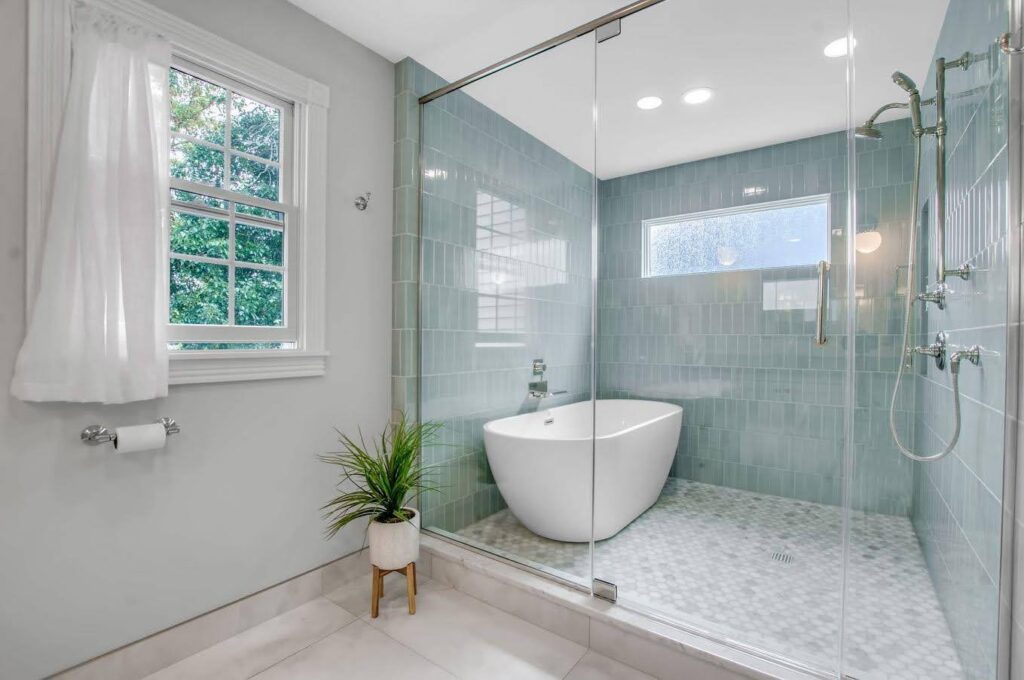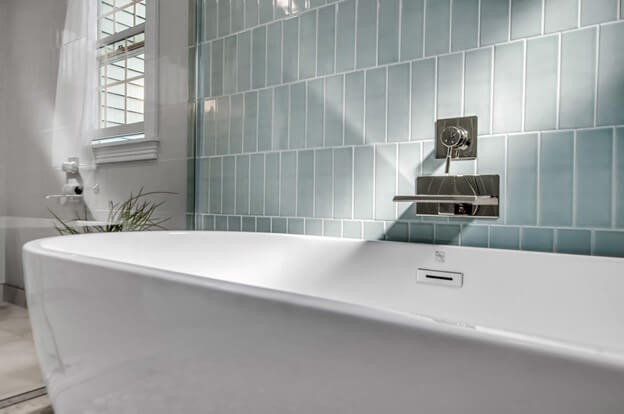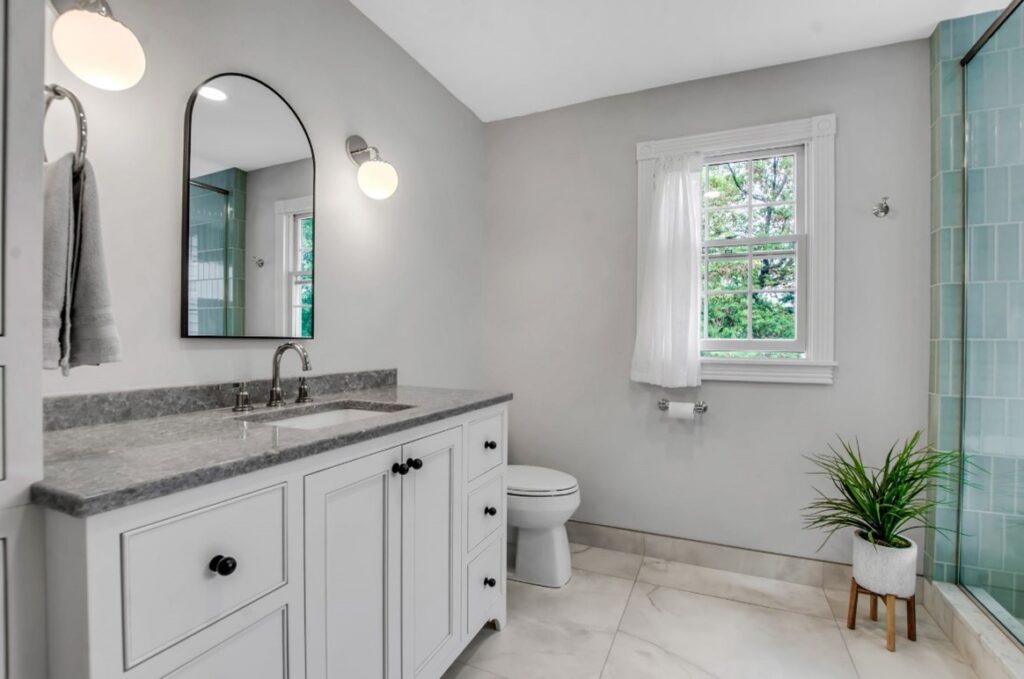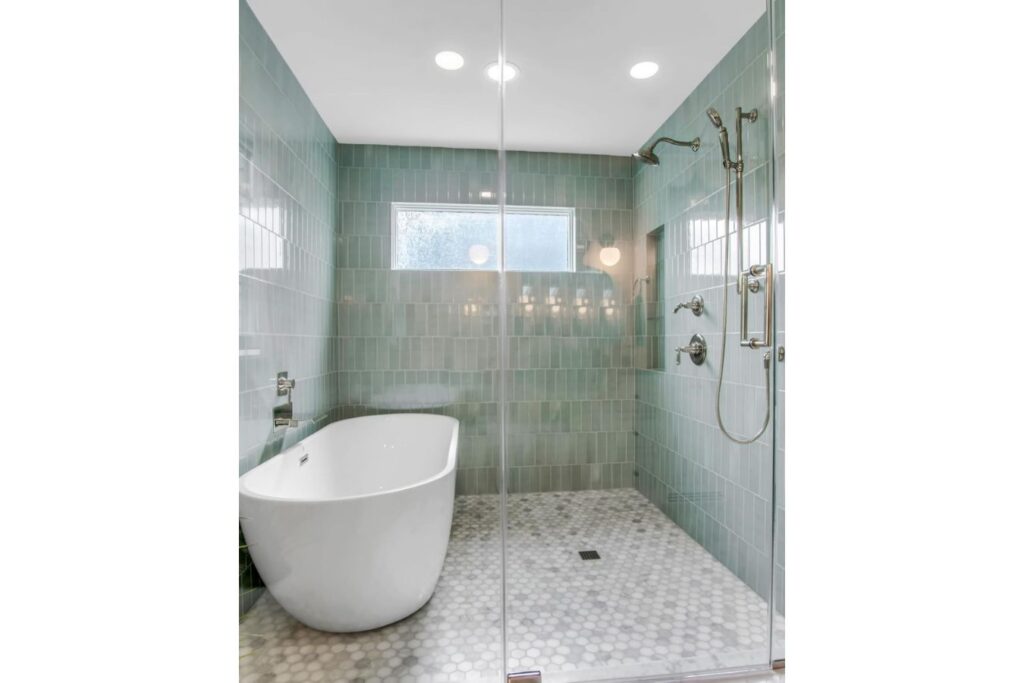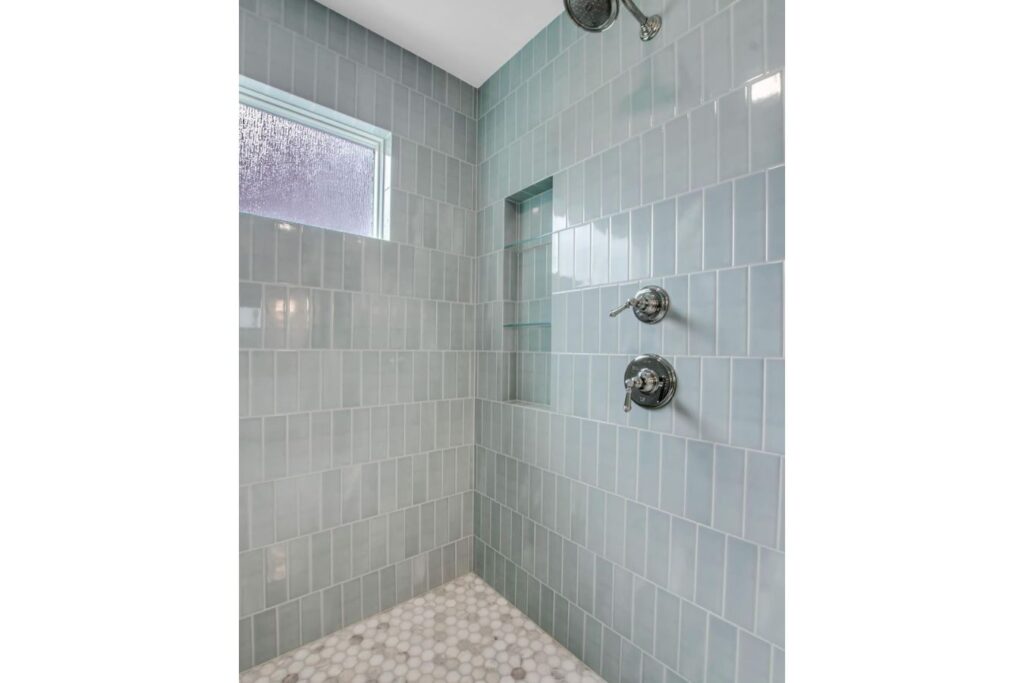Home Remodel Blog
7 Key Factors of Master Bath Remodel Cost: What to Expect and How to Budget
Master Bath Remodel Cost: What to Expect and How to Budget
A master bath remodel is more than just an upgrade; it’s an investment in your home and your day-to-day comfort. If you’re considering a renovation, understanding master bath remodel cost and what goes into it is the first step toward achieving a space you’ll love. This guide will cover average costs, factors that can impact pricing, and ways to budget effectively, helping you make an informed decision as you begin planning your master bath remodel.
Average Cost of a Master Bath Remodel
On average, master bath remodel cost can range from $20,000 to over $50,000, depending on the project scope and materials chosen. For a mid-range remodel, you might expect to pay between $20,000 and $35,000, while a high-end or luxury remodel with custom features can start at $40,000 and increase from there. This wide range reflects the level of customization and quality of materials you choose, as well as regional cost variations.
Quick Reference:
- Mid-Range Master Bath Remodel Cost: $20,000 – $35,000
- High-End Master Bath Remodel Cost: $40,000+
Factors That Affect Master Bath Remodel Cost
Several factors influence the total cost of a master bath remodel. Knowing how these variables impact your budget will help you make decisions that align with your vision and finances.
1. Size of the Bathroom
The size of your bathroom heavily influences cost, as larger spaces require more materials, labor, and time. Smaller bathrooms can cost less, but be prepared for a higher per-square-foot price if you’re adding premium finishes in a compact space. For larger bathrooms, set aside a flexible budget that accounts for more flooring, tile, and cabinetry.
2. Quality and Type of Materials
Materials make up a significant portion of a remodel budget, especially in a master bathroom where high-quality finishes are often desired. Custom cabinetry, luxury tiles, natural stone countertops, and high-end fixtures all add to the total cost. To manage expenses, choose a mix of durable, stylish materials that match your desired look. For example, consider porcelain tile instead of marble for a similar effect at a lower price point.
3. Scope of Plumbing and Electrical Work
Updating the plumbing and electrical systems can add considerable cost, especially if your remodel involves relocating sinks, toilets, or light fixtures. Moving pipes or installing new outlets typically requires specialized labor, which can increase costs. If you’re on a tighter budget, keeping the layout similar to the original can reduce plumbing and electrical expenses.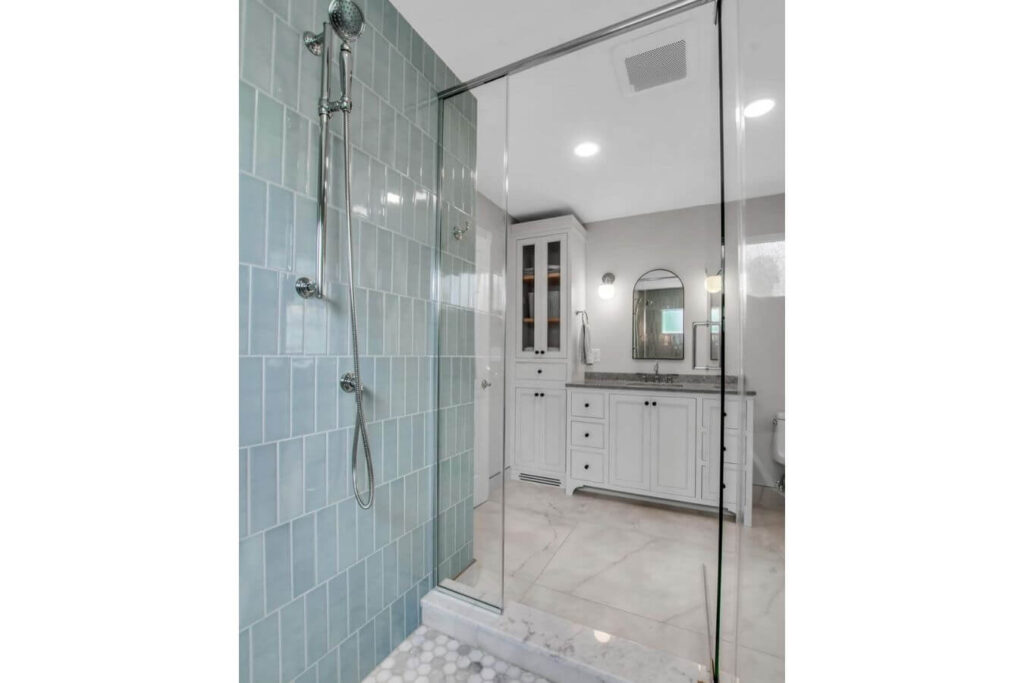
4. Type of Fixtures and Finishes
Fixtures like faucets, showerheads, lighting, and hardware come in a range of prices. High-end brands and custom designs will increase costs but can elevate the bathroom’s overall aesthetic. Focus on essential fixtures like shower systems and faucets that balance style and function, and save on smaller details if needed.
5. Customization and Specialty Features
Customization options such as built-in storage, double vanities, freestanding tubs, and walk-in showers all add to the cost. Specialty features like heated flooring, steam showers, and towel warmers can also increase expenses. Prioritize elements that are essential to your vision, and consider alternatives for luxury items. For instance, radiant heating can be installed only in high-traffic areas rather than the entire floor.
6. Labor and Contractor Fees
Labor costs depend on the contractors you hire, the project’s complexity, and your location. Quality professionals are worth the investment, as they can help prevent costly mistakes and ensure a high-quality finish. To make the best choice, get multiple quotes from contractors and inquire about all included services, from planning and permits to execution and finishing touches.
7. Permits and Inspections
Permits are often required for significant remodels involving plumbing, electrical, or structural work, and they can add a few hundred to a few thousand dollars to your project budget. Your contractor may handle this aspect, but it’s important to clarify so there are no surprises. Research permit requirements in your area and factor these costs into your budget to avoid delays and penalties.
These factors allow you to tailor the master bath remodel to fit both your budget and your design aspirations, balancing practicality with elegance.
Budgeting Tips for a Master Bath Remodel
Planning your budget thoughtfully can help you maximize your investment and avoid unexpected costs. Here are a few tips for effective budgeting:
- Set Priorities: Decide on your must-haves (such as a spa shower or custom vanity) and prioritize them in your budget, placing less critical updates as secondary.
- Plan for Contingencies: It’s wise to set aside 10-15% of your budget for unexpected expenses that may arise during construction.
- Consider Phased Remodeling: If you’re on a tight budget, consider doing your remodel in phases. For example, you could upgrade flooring and fixtures first, then tackle cabinets and countertops in a later phase.
By budgeting carefully and knowing where to prioritize, you can enjoy a beautifully remodeled bathroom without breaking the bank.
Breakdown of Master Bath Remodel Cost by Category
A closer look at specific master bath remodel cost categories can help you understand where most of your budget might go:
- Plumbing and Electrical: Rerouting plumbing or electrical outlets can add substantial costs, particularly if the remodel involves major layout changes.
- Flooring and Tiling: Flooring options like ceramic tile are usually more affordable, while marble or natural stone is more costly.
- Fixtures and Faucets: Standard fixtures are budget-friendly, but high-end options can add a touch of luxury. Consider features like water-saving faucets or rain showerheads.
- Vanity and Storage: Custom cabinetry offers a tailored look, but pre-made options are generally more economical.
- Additional Amenities: Heated floors, steam showers, or ambient lighting can elevate the space, making it feel like a personal spa, though these additions will raise the overall cost.
DIY vs. Hiring a Professional: Master Bath Remodel Cost Considerations
While DIY projects can save you money upfront, a master bath remodel typically requires professional expertise to ensure code compliance and quality. Simple tasks like painting or fixture installation may be DIY-friendly, but more complex projects—such as plumbing, tiling, or electrical work—should be handled by professionals. Working with an experienced contractor not only minimizes risk but also adds value to your project, as the work is done correctly and with longevity in mind.
Conclusion and Next Steps
A master bath remodel is an investment worth making, and by understanding the costs involved, you can create a budget that supports your vision. With careful planning and the guidance of an experienced contractor, you’ll achieve a bathroom that adds comfort, functionality, and value to your home.
Are you ready to start your remodel journey? Contact TBrothers Renovations for a free phone consultation, and let’s discuss how we can help bring your dream master bath to life!
Service Areas: All Western New York, including Buffalo, Amherst, Williamsville, Clarence, Kenmore, Tonawanda, Grand Island, Lancaster, Depew, Cheektowaga, West Seneca, Akron, Elma, Wheatfield, Lockport, Lewiston, and Niagara Falls.
Recent Posts
- Bathroom Remodel Contractors Near Me in WNY: How to Achieve Beauty That Lasts
- Kitchen Renovation Company Near Me: WNY Guide to a Great Transformation
- Home Addition Contractors Near Me: Avoid These 5 Common Mistakes
- Kitchen and Bath Contractors Near Me: Avoid 5 Common Pitfalls
- Interior Design Companies Near Me – 5 Reasons to Start Your Journey with TBrothers Renovations

